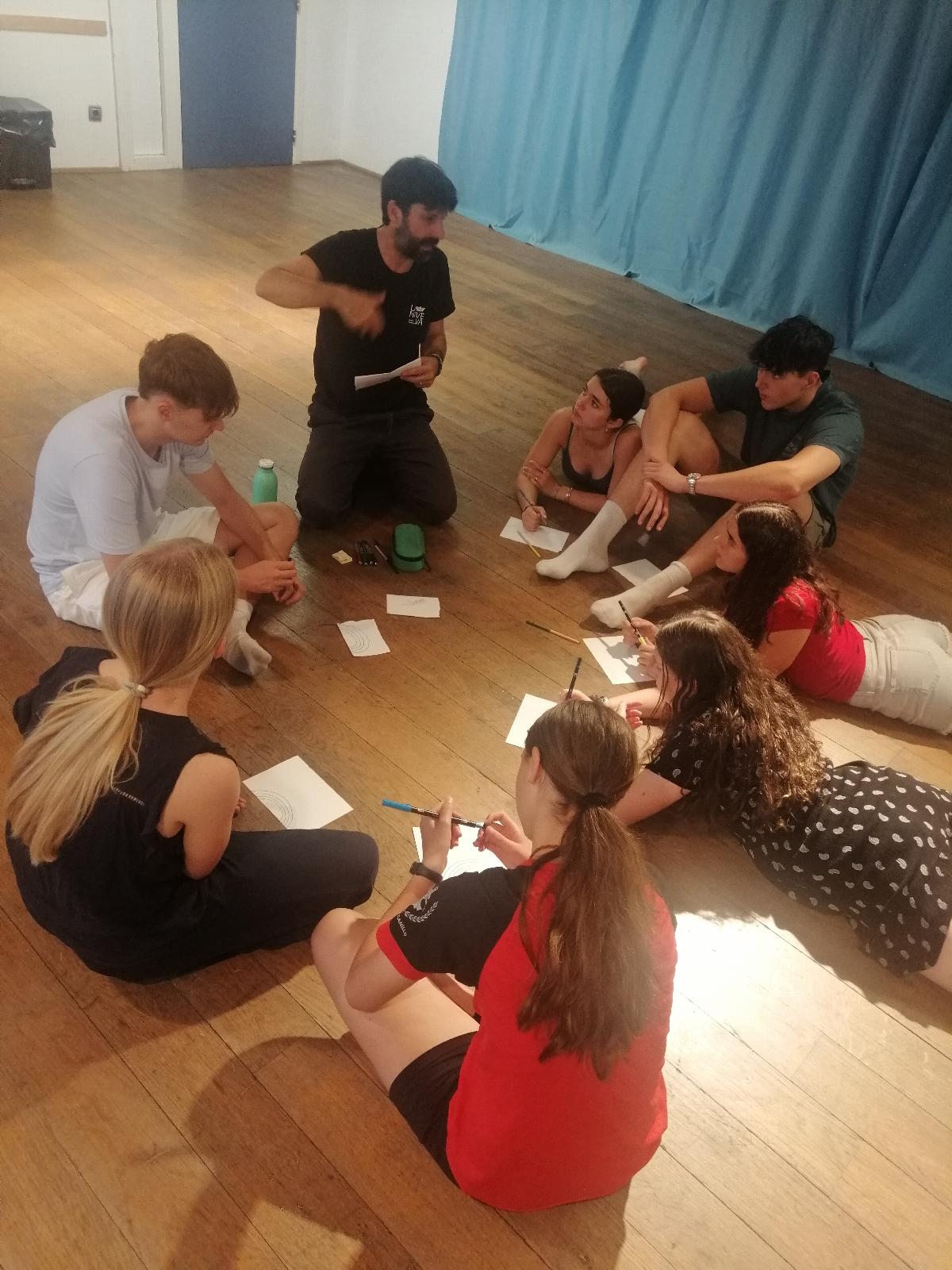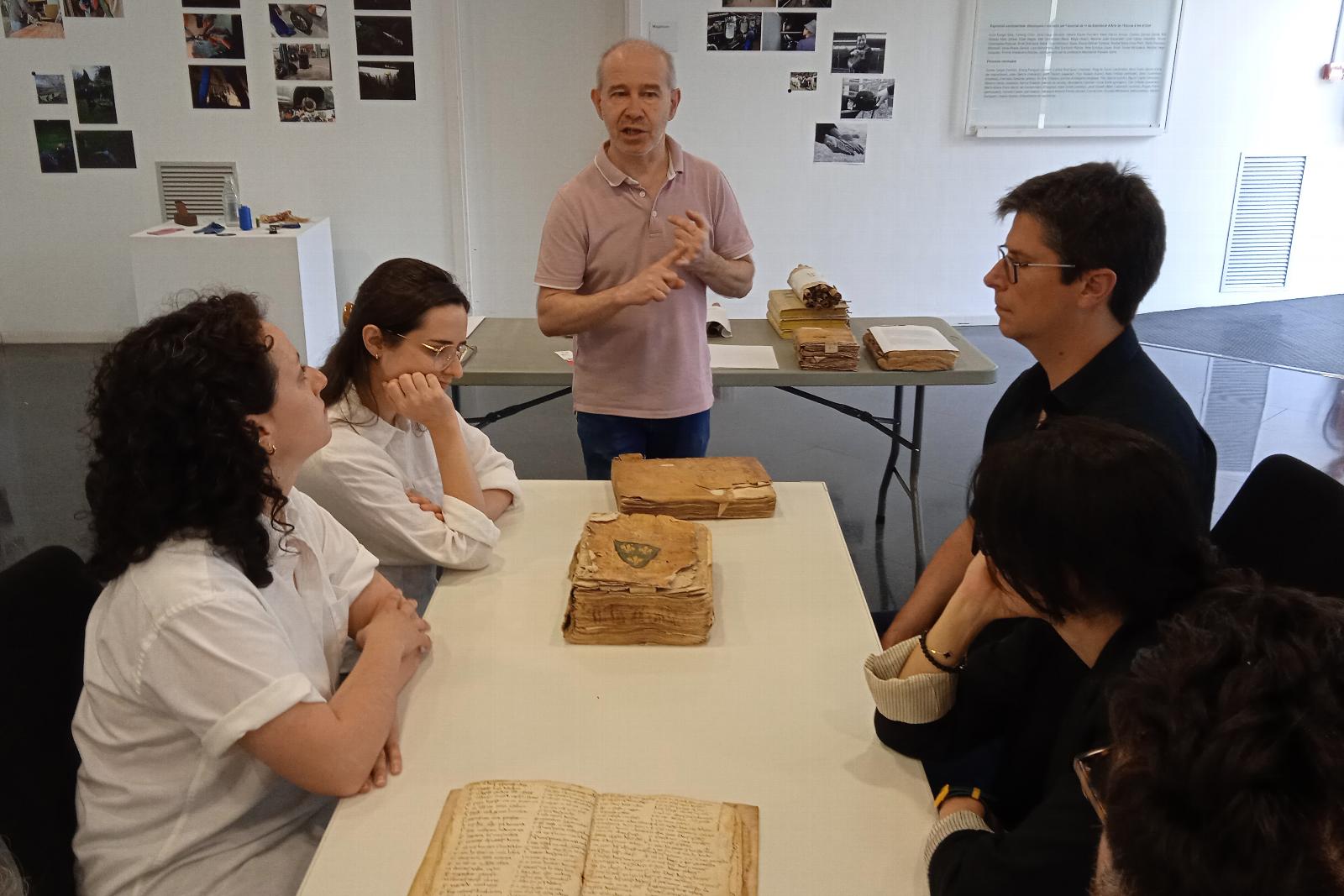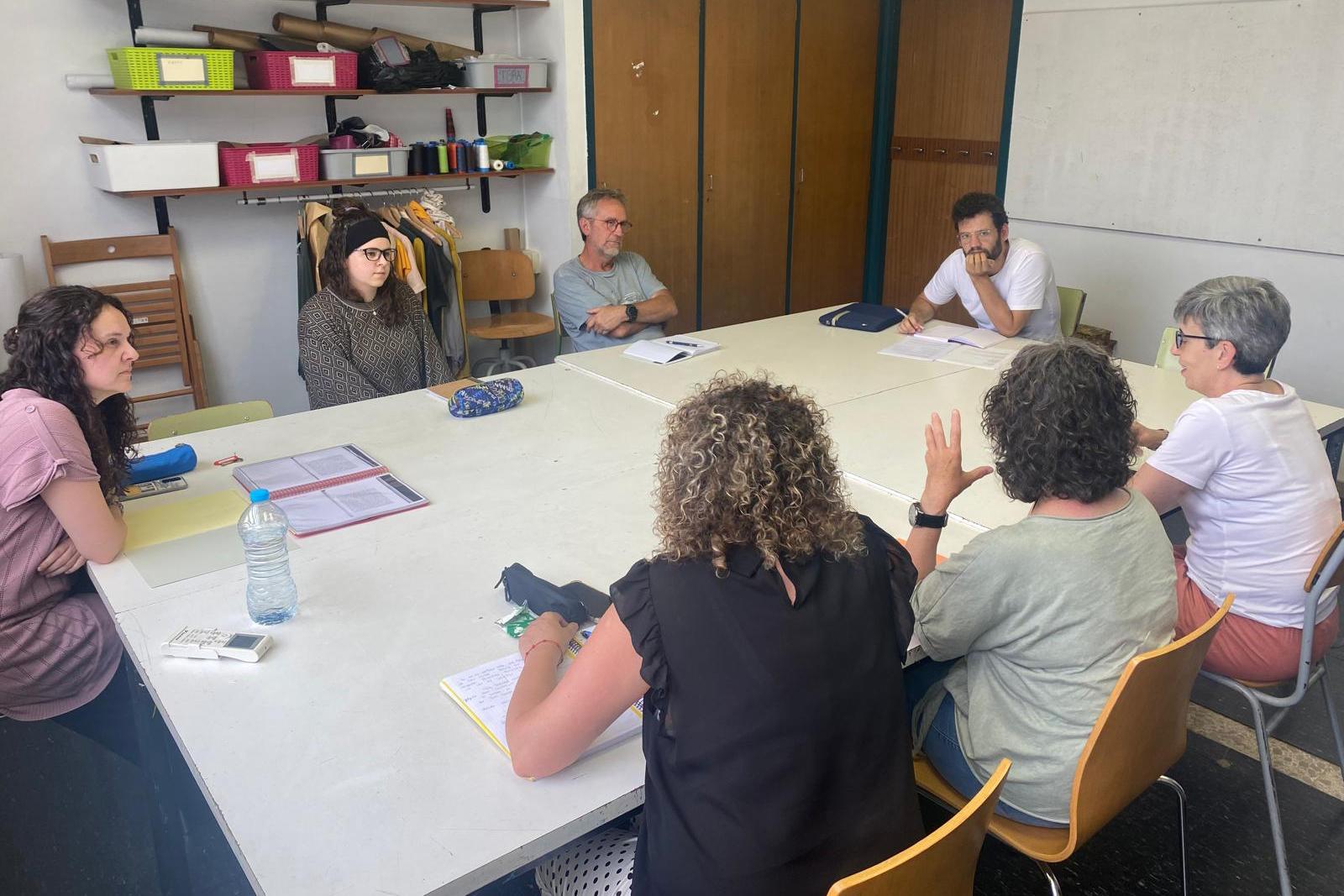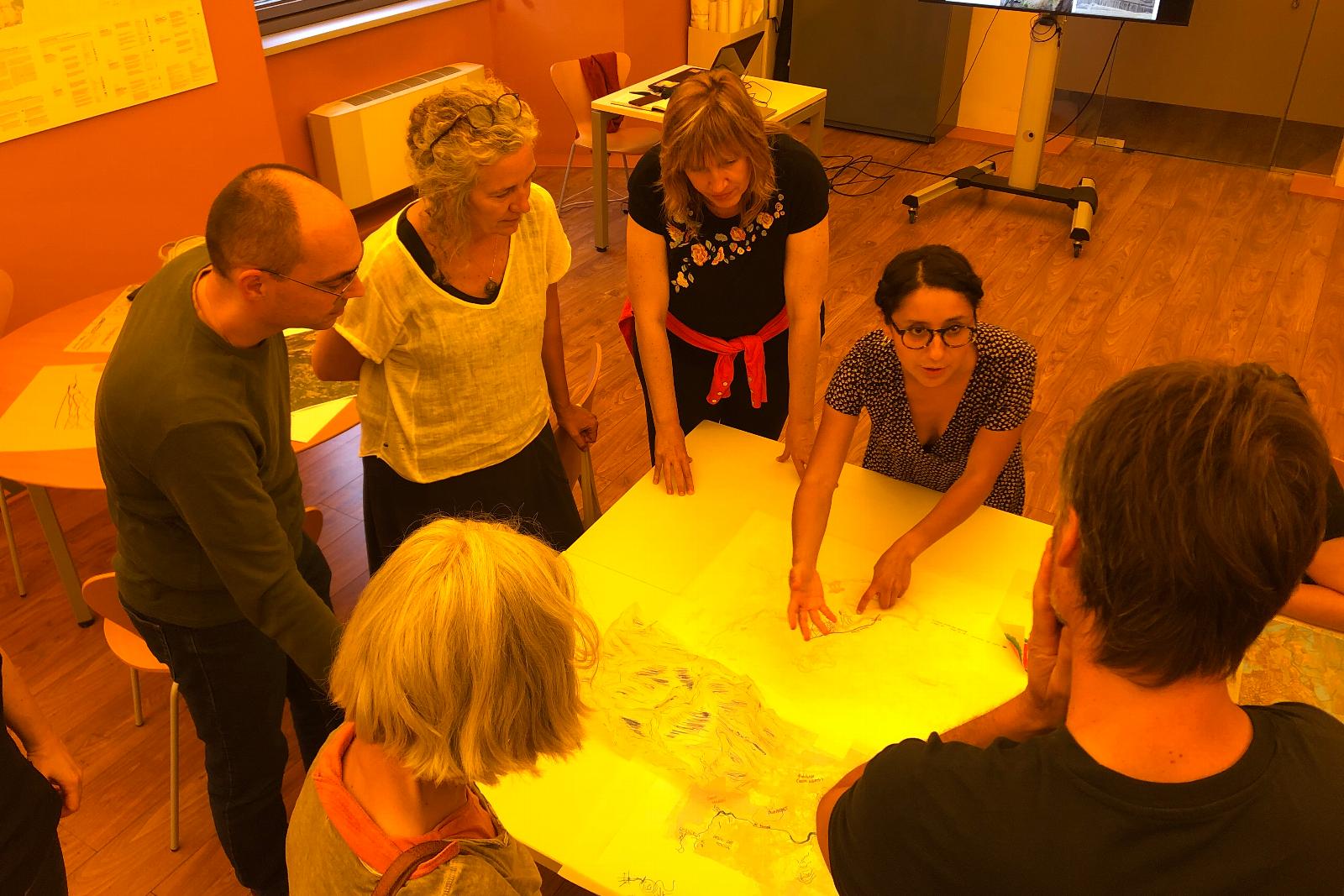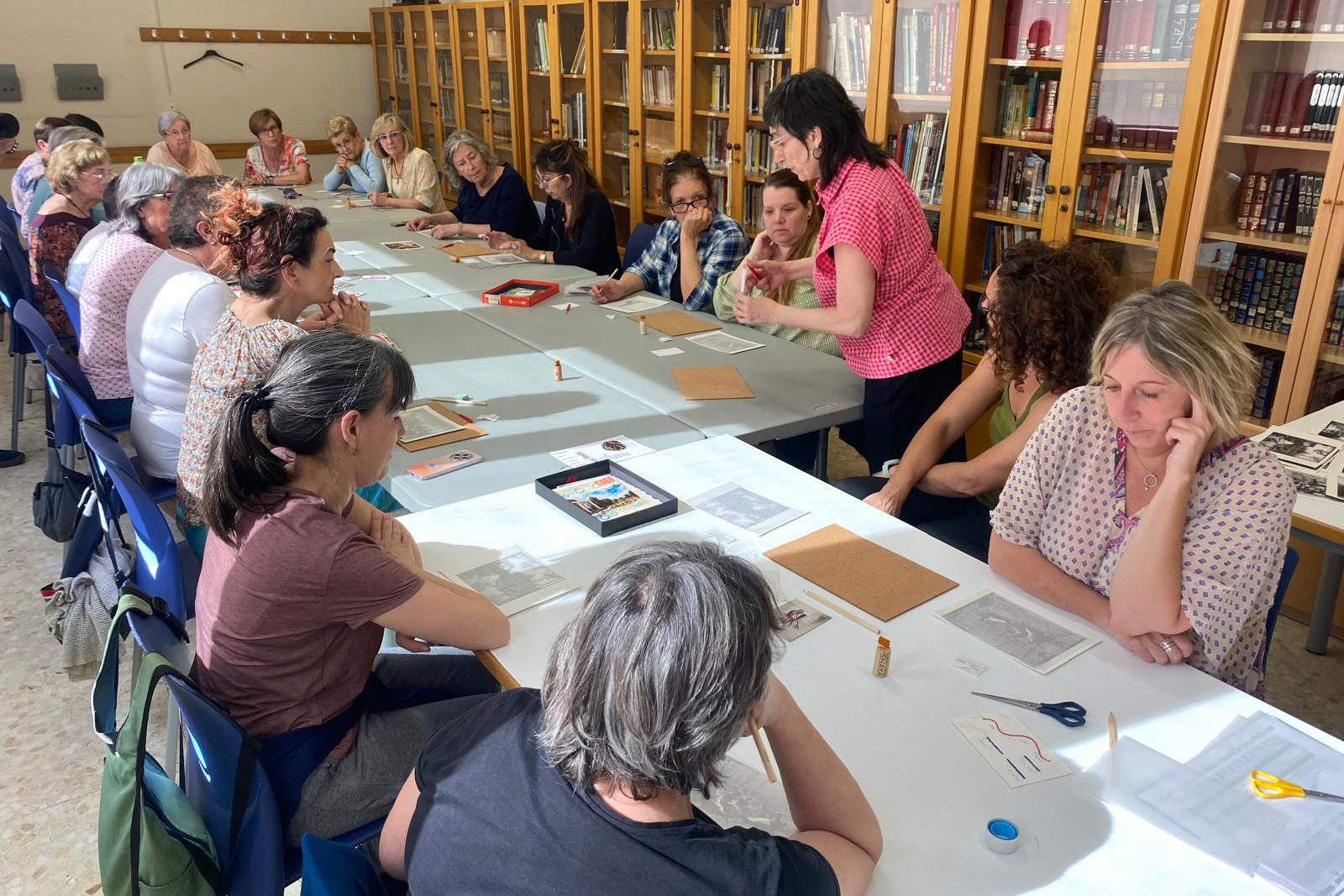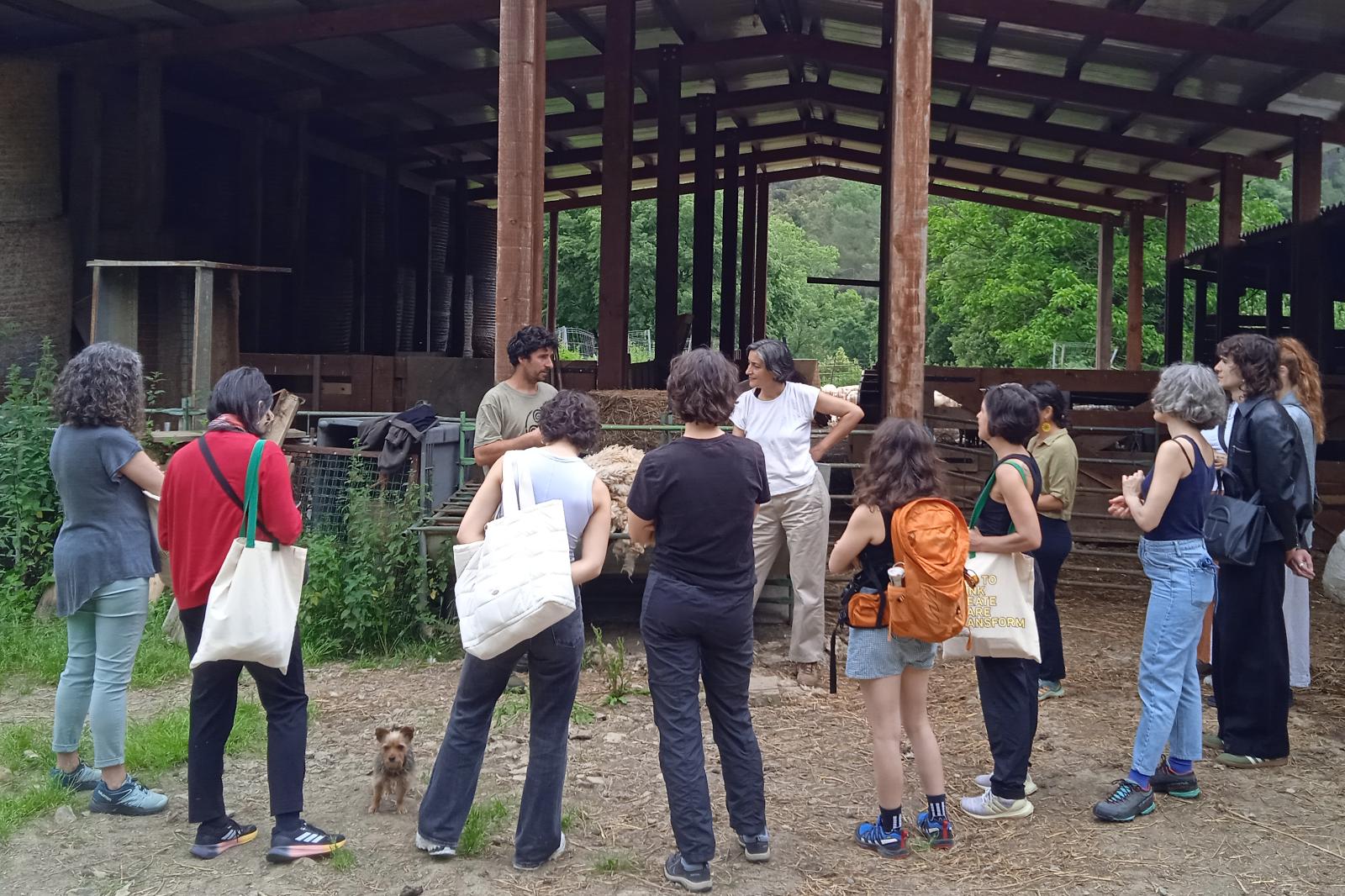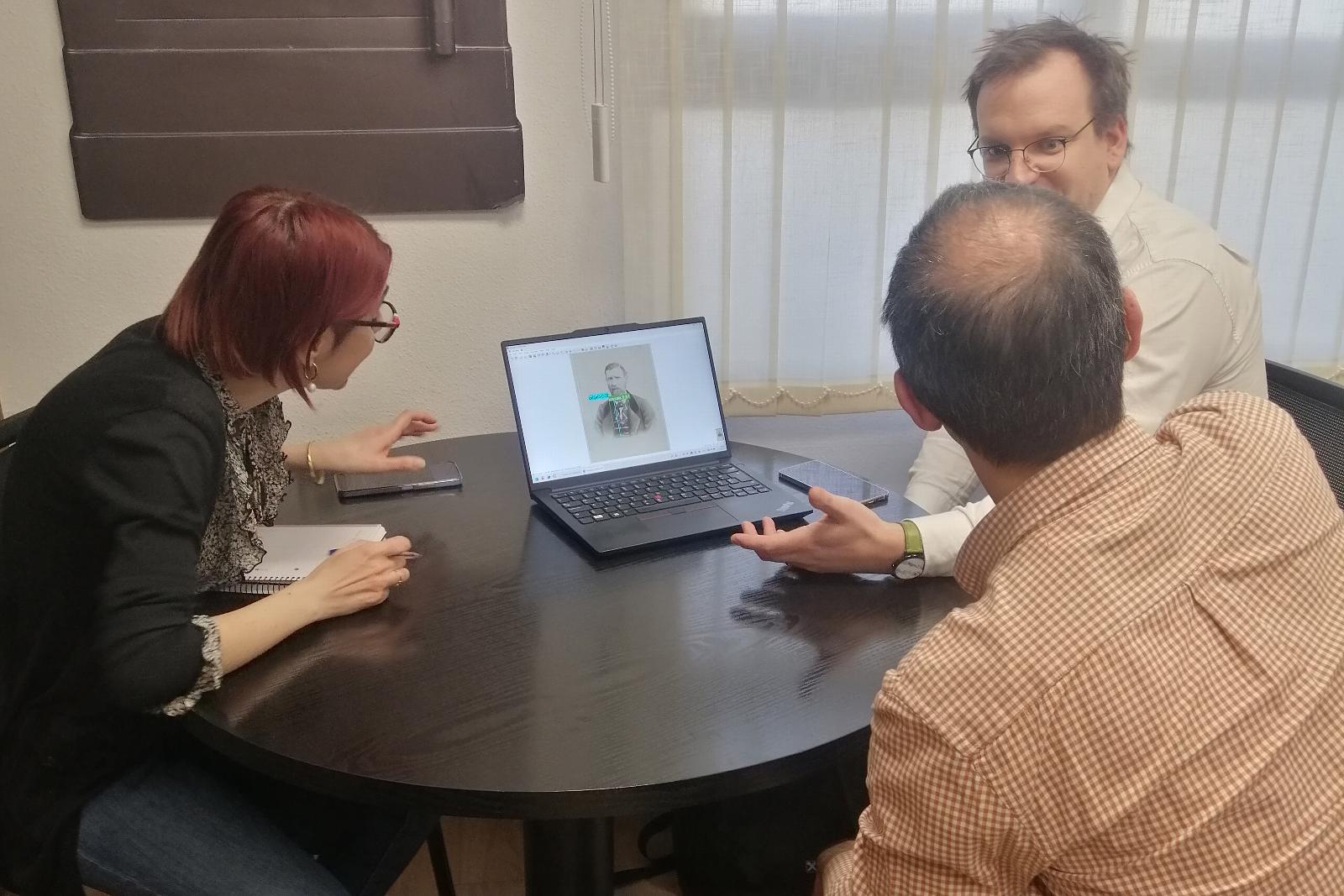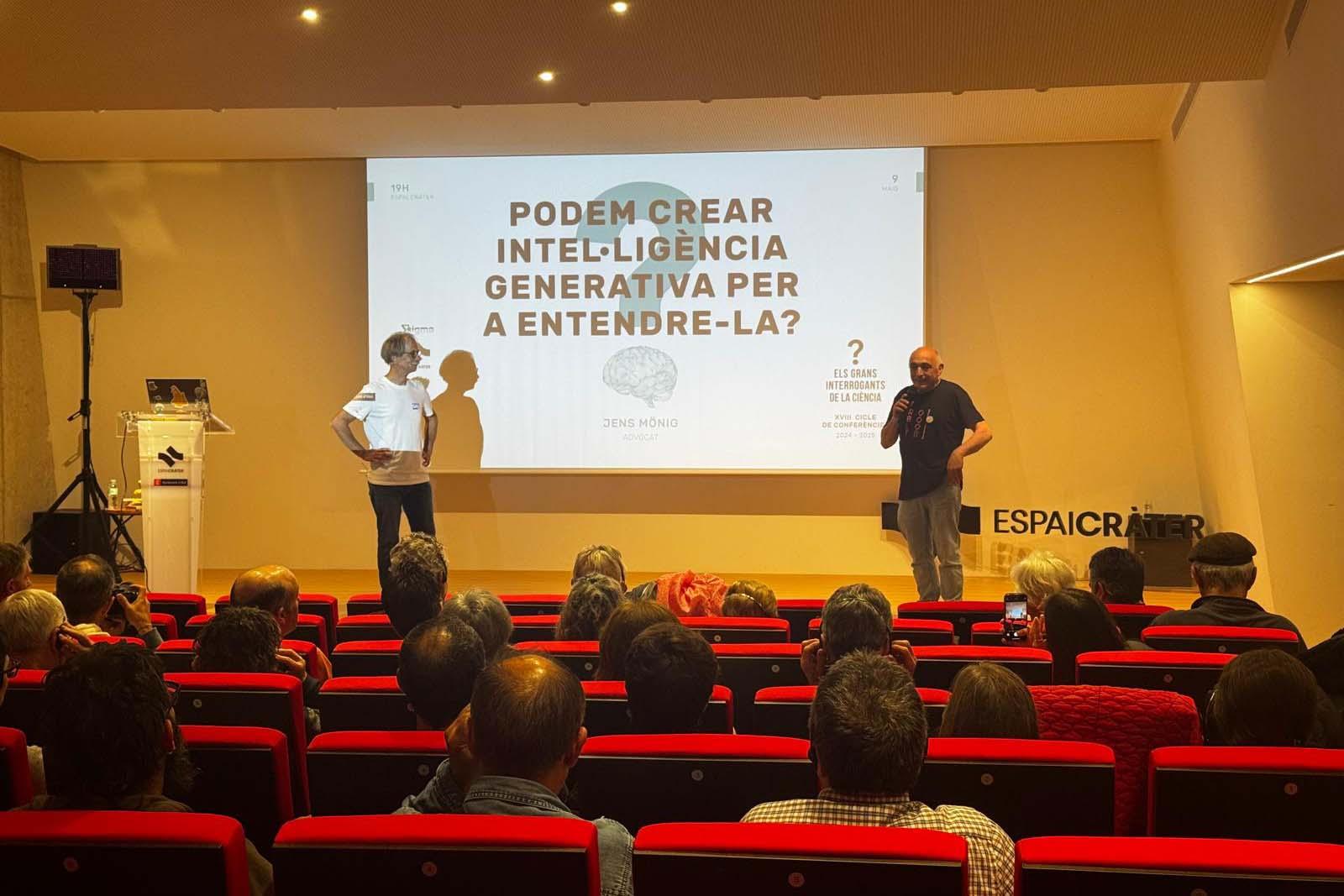Why are bad approximations of numbers good for plants?
Simon King & Marcelo Forets | March 8, 2017
Wednesday, 8 March 2017 , Olot
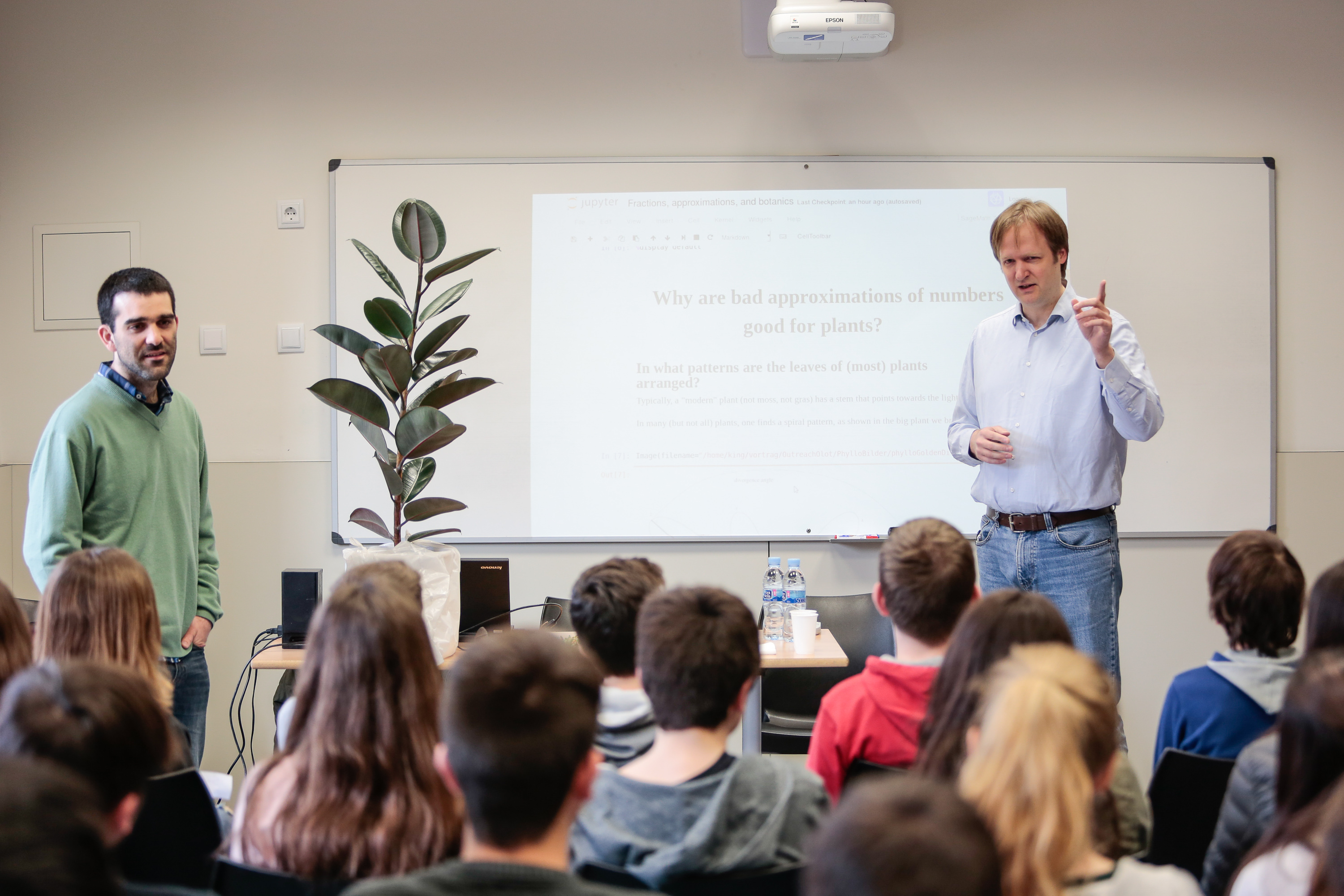
Why are bad approximations of numbers good for plants?

On Wednesday, 8 March, the mathematicians Simon King and Marcelo Forets gave a talk to about thirty second-year, third-year and fourth-year ESO students at the Escola Pia of Olot. Using a plant as an example, Simon King showed the spiral pattern of the plant’s leaf arrangement. The students investigated the parameters of the spiral shape using some grass collected from a nearby field. The aim of the presentation was to provide a mathematical explanation for the pattern observed.
The explanation is based on the “best approximations” of a number. The problem is finding a fraction so that all other fractions with a smaller denominator approximate the number with less precision. The problem is solved using the so-called “continued fractions”. They showed the students how to calculate them, using different examples, and they shared some classical mathematical results for continued fractions.
Apparently, there is a number with some “best approximations” that are worse than those of any other number. And the parameters observed in the spiral patterns in plants correspond to the “best approximations” of this number in particular. Lastly, they talked about two approaches to explain the coincidence between mathematical and botanical patterns, based on experimental research in Botany conducted over the past 20 years.
The event ended with not a few questions from some students about general matters related to mathematics and mathematicians.
Faber would like to thank everyone who made this talk possible: Simon King and Marcelo Forets—for their flexibility and availability—, and the entire staff of the Escola Pia of Olot, for making it so much easier for us to organise this activity.

